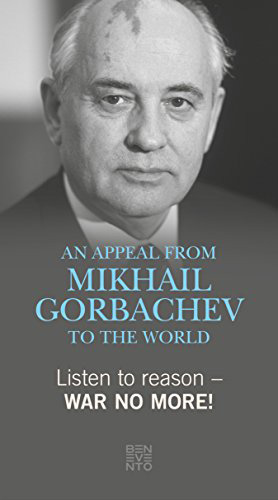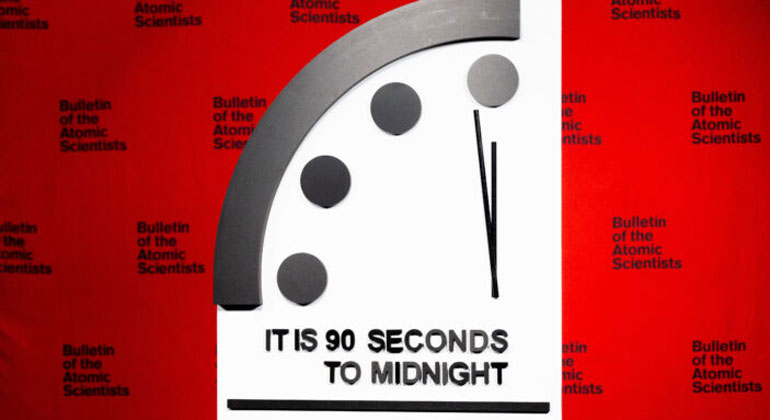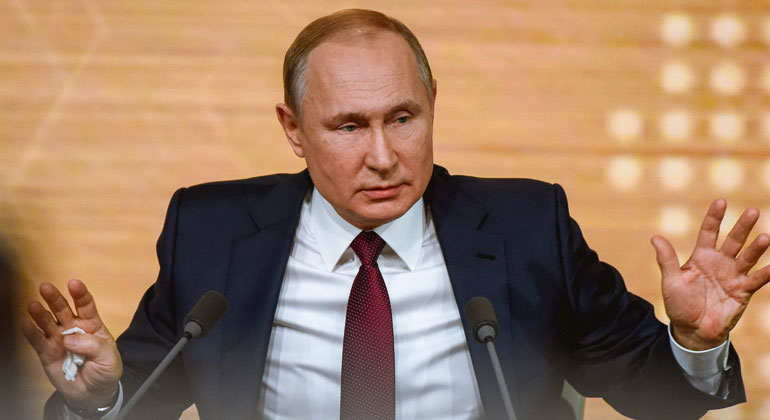We need more Putin-understanders
After my appearance on the last ZDF program “Maybrit Illner” about the Ukraine war, many viewers accused me of being a “Putin-Versteher”. They are right. If we want to get along with Putin again, we have to understand him better than we do at the moment, when we demonize or belittle him.
Putin-Versteher has become a dirty word in wide circles in Germany. That says a lot about us and little about Putin. For me, Putin-Versteher is precisely not “Putin admirer”, but the attempt to come to an end of the war as quickly as possible, even with Putin, so that the immeasurable suffering of this war is ended. If I really want that, I have to understand him first. It is no different with our conflicts in our private lives. We will probably not be able to have another adversary or enemy at the negotiating table for a long time. Anyone who says “You can’t talk to Putin” should not be surprised if there is still no dialogue.
What does Putin-understanding actually mean?
Russia’s president is waging a criminal, bloody and cruel war against 45 million people in Ukraine in violation of international law. In this situation, Ukraine must be supported humanitarianly, economically, but also militarily and receive help from outside. Even pacifists must not hide behind their old slogan “Creating peace without weapons”. Anyone who now recommends that the Ukrainians “create peace without weapons” is acting cynically. That is a failure to help. The peace movement must also rethink in this situation and direct its appeal “Stop the war” to the right address, namely to the aggressor in Moscow.
This is painful real-pacifism in contrast to fundamental-pacifism. Fundamental pacifism today is pacifism in the sense of the aggressor. This distinction was already made by the great pacifist Albert Einstein, who distinguished between irresponsible and responsible pacifism. The true pacifist Berta von Suttner argued similarly. She said, “Every people has, of course, the right of self-defense.”
The Charter of the United Nations
That’s what the UN Charter says, too. Fundamental pacifists contradict and write to me, who also pleaded on Maybrit Illner for the delivery of German defensive weapons: “All weapons kill.”
I have argued similarly for a long time. That’s why I understand this thinking. But especially in the last few weeks, it has become clear that defensive weapons from Germany have saved the lives of many Ukrainians. Also in the last few days. On one day in early January, Russian soldiers fired 82 missiles at civilian Ukrainian targets. Of these, more than 70 were destroyed in the air with defensive missiles.
German weapons saved the lives of hundreds of Ukrainians. If we do not want to be ideologically stubborn, we must rethink in this situation and remain capable of learning. However, this must never mean slackening the pressure for dialogue. But: If my neighbor calls for help, I as a Christian and pacifist must not cover my ears when I have effective defensive weapons. That would be the opposite of what all religions and wisdom teachings demand. “Thou shalt not kill,” also means, “Thou shalt not cause to be killed, if thou canst prevent it.” This is the primordial ethos of humanity.
“Love of enemies,” after all, never means “let everything be done to you.” That would mean to declare the wonderful young real-pacifist from Nazareth a fool. “Love of enemies” means: Be smarter than your enemy. Always try to think yourself into him. Be Putin-understanding, only then you may be able to get along with him and possibly even make reasonable compromises with him. We must no longer think of ourselves as the absolute good guys and the Russians as the absolute bad guys. The West has also made mistakes.
I want to name three realpolitikers who have repeatedly reminded the West of its past mistakes toward Putin and Russia:

- Mikhail Gorbachev. During the Cold War, he had to empathize with Ronald Reagan, who, God knows, was no pacifist. But together they achieved the greatest military disarmament of all time. And the end of the cold war. That meant 30 years of peace – a gift for the whole world, especially for Germany. One important aspect was almost completely overlooked in the obituaries of Gorbi in Germany: He had agreed to the annexation of Crimea after 2014, saying, “I would have done that similarly if I were president today, but without violence, but through dialogue.” Gorbi was disappointed in the West, which had “never been interested in a stable and democratic Russia.” In 2017, Gorbachev told me in our joint book, “WAR NO MORE!”, that “the West played the victor over Russia after 1990.” Gorbi blamed not the “Russian occupation of Crimea” but “Washington’s arrogance” for the deterioration of East-West relations. After 1990, NATO had 16 members. Today there are 30 and more are to come. This is seemingly no problem for us in the West: but for a fear-driven politician and intelligence man like Putin, and for millions of Russians, this NATO eastward expansion looks quite different. You don’t have to be a psychologist to understand that.

My counter-question to Western hardliners: How would the U.S. react if Canada or Mexico, as direct neighbors of the United States, entered into a military pact with Russia? We saw that in 1962 with the Cuban missile crisis. The U.S. wanted to prevent Russia from stationing nuclear missiles near the U.S. at all costs. The world was on the brink of nuclear war. And nuclear scientists have just set the “doomsday clock” to “90 seconds to twelve.” Never before have we been so close to the nuclear abyss. A few weeks ago, US President Biden – also a realpolitik politician – said the same thing. What still has to happen before both bellicists and pacifists learn to think anew and secure our common survival?
- Helmut Schmidt has often reminded us that “since Gorbachev, Russia has nowhere violated its borders militarily and has behaved more peacefully toward the outside world than ever before in tsarist or Soviet times.” During the Cold War, Gorbachev approached the West. Now the West would have to approach Putin with an offer.
- Helmut Kohl also spoke of “great failures on the part of the West in recent years.” Kohl: “The spirit of optimism in Ukraine (2014) was no longer wisely accompanied. Likewise, there has been a lack of sensitivity in dealing with our Russian neighbors, especially President Putin.” As a rule, conflicts cannot be resolved without an attempt at mutual understanding. Of course, every country has the right to ask to join NATO. But in doing so, Russia’s security interest should never again be disregarded. It is also true for the West to learn from mistakes. And it was a big mistake to forget those who felt like losers. Kohl countered the slogan of the peace movement “Creating peace without weapons” 40 years ago with the slogan “Creating peace with fewer and fewer weapons”. This meant disarming instead of continuing to rearm, as is the case now. This is the only way to end the eternal spiral of violence. Every starving person in this rich world is a disgrace to our humanity. We spend over two thousand billion US dollars on the military every year. Money that is then lacking for overcoming poverty and misery and for education.
Is there a chance to enter into dialogue with Putin?
Even the path of real pacifism begins with small steps. Perhaps it could help to signal to Putin diplomatically that the West also wants to learn from its past mistakes. Maybe! And make proposals for joint disarmament, in which everybody would win. Now, at the latest, in the nuclear age, security only makes us more secure if it really always means the security of others. Also the security of Ukraine and the security of Russia. That must be in everyone’s interest.
Whoever has an alternative that can help to end the suffering of the Ukrainians more quickly and effectively, please contact us. The Russian Gorbachev has shown that peace is possible even in difficult times. Now it’s the West’s turn.
- Mikhail Gorbachev “Listen to reason – War no more!: An Appeal from Mikhail Gorbachev to the world” (English Edition)
Quelle
Franz Alt 2023 | Translated with www.DeepL.com/Translator (free version)








